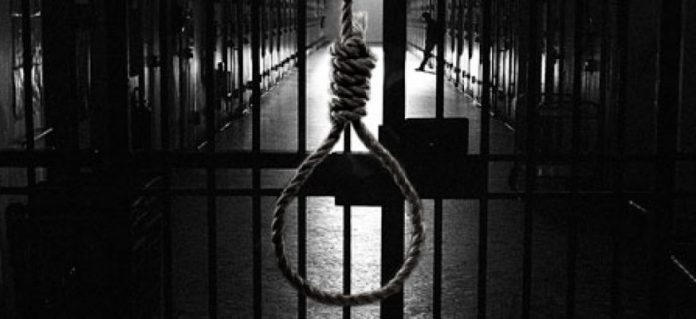

The Senate in May passed a bill prescribing the death penalty for persons found guilty of trading or consuming hard drugs and narcotics. The bill titled, “National Drug Law Enforcement Agency Act (Amendment Bill) 2024”, was passed after a majority of senators supported it at the Committee of the Whole. Many former state governors who refused to execute more than 3,000 inmates currently on death row in all the correctional centres are members of the Senate that proposed heavy penalties for drug trafficking, making the death penalty the new maximum sentence through a law amendment. The amendment, which is not yet a law, replaces life imprisonment as the punishment.
It is difficult for Nigerians to believe that the former governors who refused to sign the death warrant of inmates on death row are proposing the death penalty for drug traffickers. Nigeria, Africa’s most populous country of more than 200 million people, has in recent years gone from being a transit point for illegal drugs to a full-blown producer, consumer and distributor.
Opioid abuse, especially tramadol and cough syrups containing codeine, has been widespread throughout Nigeria, according to the National Agency for Food and Drug Administration and Control, which banned the production and import of codeine cough syrup in 2018. While cannabis is cultivated locally, cocaine, methamphetamine and other narcotics are trafficked through the country alongside opioids to feed a growing addiction problem.
The Nigerian Prisons Service was renamed the Nigerian Correctional Service. But many are not excited by the name change because, in real terms, nothing has changed. This was confirmed by a former NCS Controller General, Ahmed Ja’afaru, who disclosed that almost 3000 inmates who have spent 10 years on death row still live under the suspense and mental torture of death. “Out of the number, a greater percentage of them may have finished appeals and are still waiting for the determination of the approving authority to either approve their execution or commit them to life imprisonment,” said Ja’afaru.
According to Ja’afaru, the custodial centres across the nation have a population of 73,102 inmates, 19,878 convicted males and 299 convicted females. Condemned male prisoners stand at 2,677. But like it has always been, inmates awaiting trial constitute the majority as their numbers stand at 50,216.
We can understand that some governors dither in signing death warrants on humanitarian, political, religious, emotional and ethnic grounds. But whatever may be the mitigating sentiments, the delay in carrying out this executive function is breeding congestion that has impacted significantly on the administration of justice. That is aside from the helplessness endured in the roller coaster of emotions for these condemned inmates who have practically been reduced to the status of the living dead.
Statutorily, governors are not bound to sign the warrants for the execution of people on death row. They can exercise their prerogative to commute such sentences to a lifetime in jail or reduce the jail terms. They can also grant such convicts state pardon, therefore putting a closure to the matter. But it is unacceptable for them to leave inmates perpetually on death row.
The obligation of the governors is specifically enshrined in Section 212 of the 1999 Constitution as well as Section 221 of the Penal Code and Section 319 of the Criminal Code. All this prescribes capital punishment for murder while sections 37 and 38 of the Criminal Code prescribe the same punishment for treasonable felony. There is of course a global campaign against capital punishment, but it is still applicable in Nigeria. The majority of these death row inmates are in solitary confinement having been convicted for such offences as murder, treason, and armed robbery. Some states in the country have also enacted capital punishment for those convicted of kidnapping.
It is an inherent violation of their rights and dignity to keep people interminably on death row, especially for cases that have been concluded by the Supreme Court. Such practice is antithetical and capable of inflicting traumatic shock on the inmates awaiting an imaginary death in solitary confinement. To put it in context, prisoners on death row are condemned to a kind of existential limbo, existing as entities in cold storage rather than living as human beings. We therefore imagine the harrowing spell condemned inmates go through daily in solitary cells, humbled by the force of an impending death that seems to be an eternity.
Whatever may be the justification, prolonged solitude is a punishment that is detrimental to the psychology of death row inmates. It kills the victims incessantly and unmercifully. We welcome Section 12 (2c) of the new NCS Act which provides that where an inmate on death sentence has exhausted legal procedures for appeal and a period of 10 years has elapsed without execution of the sentence, the chief judge may commute the death sentence to life imprisonment. It is the right thing to do.
Inwalomhe Donald writes via [email protected]
Join Television Nigerian Whatsapp Now
Join Television Nigerian Facebook Now
Join Television Nigerian Twitter Now
Join Television Nigerian YouTUbe Now





